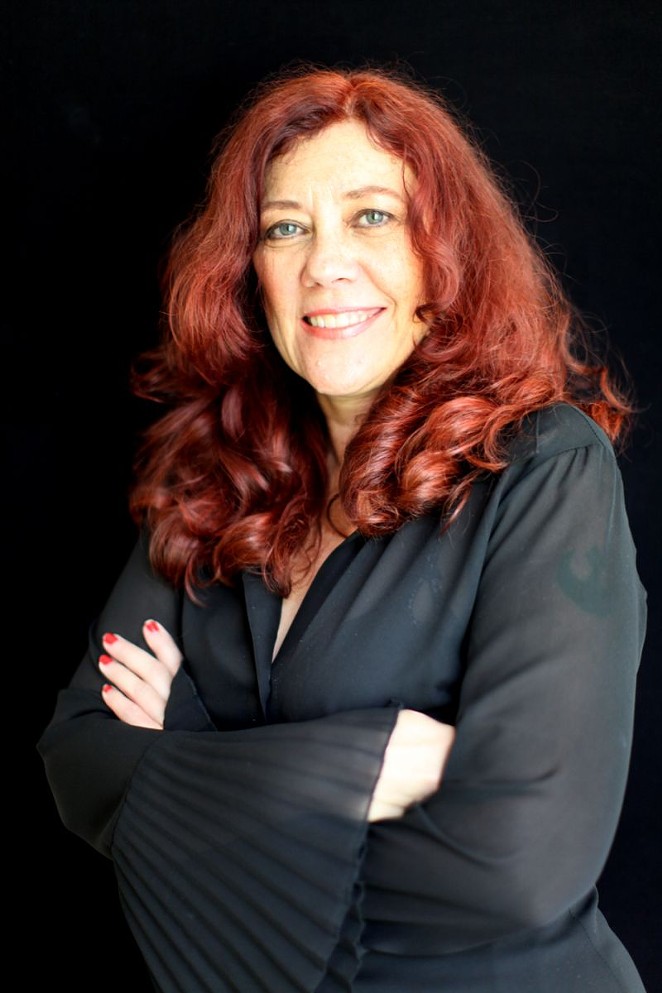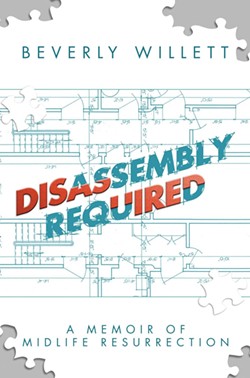I’VE HEARD writers say many times that their book release – opening up that first box of copies, seeing the words on paper – legitimates their work in some way.
For Savannah writer Beverly Willett, who’s written for periodicals, her first book experience carries with it a degree of personal legitimacy.
“Disassembly Required: A Memoir of Midlife Resurrection” says of her life, “This actually happened. I made it through. I’m still standing.” That song, “I’m Still Standing,” was one of two Elton John songs that Willett and I discussed when we met to go over her book, a gut-wrenching story of betrayal, surrender and resilience.
“If I hadn’t gone through these things and made sense of them, I wouldn’t be sitting here,” she says. “Having done this, I feel like I’ve made a huge leap into that next level as a writer.”
In that next level, she’s gone deeper and more fully analyzed her something like 15 year struggle to overcome her marriage’s Titanic ending.
“It’s not a book about divorce,” she says. “It’s about starting over.”
It’s the story that life gave her, one she pitched and pitched and pitched to rejection after rejection.
“Memoirs are hard to sell,” publishers told her. Now it’s available, I think, as inspiration for when your life gives you – as it most surely will – something fetid.
The story springs through her life, which began in rural Maryland, where this Southern girl grew into an entertainment lawyer in New York City. There, she met, fell in love with and married a man who cheated on her.
There were a house and kids by then. She had dialed back her career to take care of the house and kids.
But her husband’s betrayal was only the beginning. The court’s betrayal followed, with judge after judge urging her to settle for less, sell the house and “move on.”
Or as one judge bluntly suggested, “Why didn’t I get myself a nice law job and a condo and find a boyfriend?” Because Willett wanted her life back! Only it wasn’t coming back.
I felt a tension in the book between a seemingly hopeless clinging by threads, like a Jenga game a few blocks away from falling, and the frightening possibility of letting it fall.
In this game, unbelievably, Willett managed to keep the house. That gave her two daughters one stable thing as they grew: the house.
Elton John’s “House” was the other song that Willett and I discussed. “This is my house / It belongs to me” is another defiant ode.
Her four-story Brooklyn brownstone became a central character in the book. Once her daughters went to college, its purpose, with Willett at least, was over, and it was time to sell it.
Here’s where the book becomes Marie Kondo. Willett eventually realizes that you have to give up what you think you have, things, in order to find the only thing that you really have, your soul or unique being, not to get too spiritual on you.
Willett’s book quotes Kierkegard, Rumi, Buddhist scripture and the Psalms.
And I get the sense that Willett’s strength comes in part from these sources. But meeting her a few weeks after she was in a car wreck – right before the book release, the worst possible timing – she expressed some exasperation at this stoic image.
“I’m sick of being so strong,” she said. “I’m pissed about it.” Strength comes from challenge.
Some challenges we could do without, like car wrecks and shoveling snow. Willett exchanged the wintry north for Savannah, where she’s become a true local, helping writers and serving on non-profit boards.
This is what makes her legitimate, in my opinion! Check out any of the events surrounding the release of her book, a great read.



